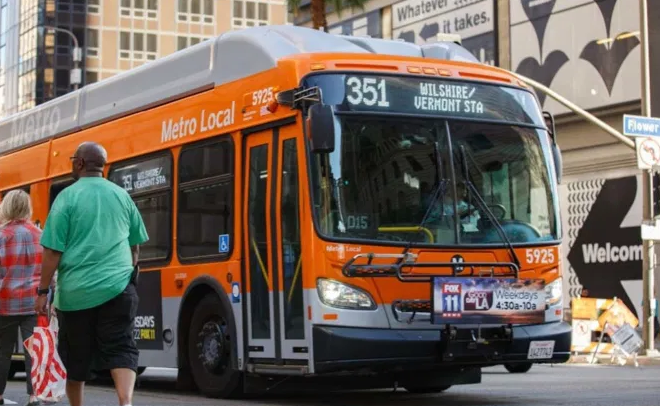At this morning's meeting of the full board, Metro CEO Phil Washington announced a new internal task force intended to plan and implement a fareless transit system pilot. Few details are available, but there are some outlines in Washington's presentation on the Fareless System Initiative (Operation FSI) Exploratory/Action Task Force.
According to the presentation, the fareless transit initiative is billed as "a moral obligation to explore how a fareless system can aid those that have been hit hardest by the pandemic" and "a mitigation for targeting BIPOC on the system."
Washington stated the task force will meet starting September 1, and will deliver its recommendations in December for implementation starting early 2021.
A few boardmembers questioned how Metro would pay for the initiative. Washington responded that Metro would seek federal and state funding, and might repurpose some Metro revenue, such as from advertising.
With funding from multiple sales tax measures, transit fares are relatively small part of Metro's overall revenue. UCLA transportation researcher Juan Matute tweeted that Metro is among the state's best-suited agencies to attempt fare-free transit.
While transit advocates welcomed the announcement, it rang somewhat hollow (or even appeared to be a diversion) as Metro appeared unwilling to budge on proposed 20 percent bus service cuts. Director of the Alliance for Community Transit - Los Angeles (ACT-LA) Laura Raymond stated that though "we look forward to working with this task force to see free transit in L.A. County in 2021... we can’t have a free system with poor service." ACT-LA will continue to "demand a full funding of the bus system redesign during this budgeting process.” Investing in Place Executive Director Jessica Meaney also welcomed fare-free transit with the caveat that it "should not come with any bus service cuts, but in fact a larger investment in frequent, fast and reliable buses and a commitment to prioritize buses on our streets." Transit Center Senior Communications Associate Hayley Richardson tweeted that "a free bus that comes once an hour isn’t freedom of movement."
In May, the Metro board approved half-price fares for "not less than six months from the date regular boarding practices resume" after COVID-19. Under COVID back-door boarding, Metro has already been effectively operating fare-free. With fare revenue at an arguably all-time low, and due to be cut in half, perhaps Metro would not miss fares all that much during part of 2021? Hopefully the fareless system trial will be a laboratory to inform future agency practices, and not a flash in the pan quickly forgotten.






